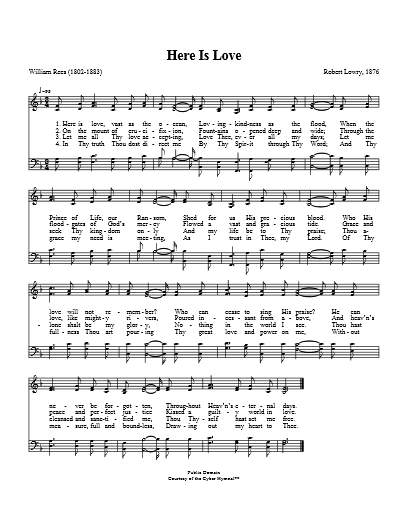“The Lord Jesus, on the night he was betrayed, took bread, and when he had given thanks, he broke it and said, “This is my body, which is for you; do this in remembrance of me.” In the same way, after supper he took the cup, saying, “This cup is the new covenant in my blood; do this, whenever you drink it, in remembrance of me.” For whenever you eat this bread and drink this cup, you proclaim the Lord’s death until he comes” – 1 Cor 11:23-26
The Holy Communion, the Eucharist, The Lord’s Supper, call it what you will. It’s the sacrament where Christians eat the ‘bread’, which is representative of Christ’s Body, and drink the ‘cup’, which is usually wine or some other red drink (like red grape or blackcurrant juice) which signifies Christ’s Blood. And just like with baptism, the other main Christian sacrament, some Churches make it so complicated – but really it isn’t, and it doesn’t need to be.
When we come to the table, and eat of Christ’s Body, and drink of His Blood, we are signifying so many things. We are declaring that Jesus died and rose again. We declare that the bread and wine, being physical objects, represent something that is no less real (God) just because we can’t (normally) see and touch it. We are remembering Jesus and what He did. We declare our unity as Christians, and as a body of believers – because we all ‘eat from the same bread’, we declare that we are one body – which indeed we are.
And there’s more. We declare and remind ourselves that we are in Christ, both in terms of identifying with Him, but also in terms of that we were ‘in Christ’ when He died, and therefore not only did we die with Him but also we were raised up in Him too. Hallelujah!
Communion is so important for healing; because Christ is whole and healthy, by remembering that we are in Him, we also declare our own health and healing. As He is, so are we! (1Jn4:17 NKJV) And the blood for forgiveness – we are talking here about a whole, full and complete healing for our bodies, our souls and spirits, and our relationships – both with humans and with God.
What a feast Communion is, then! Ok, we get only a tiny bit of bread and a little sip of wine, but in spiritual terms it’s a real banquet!
So why has the Church made such a fuss about who can and cannot take Communion? My theory is that the Church are trying to act responsibly. You see, if you read the entire passage in 1 Cor 11:17-34, it looks at first sight as if it is possible to do yourself real harm if you eat and drink the Lord’s Supper ‘in an unworthy manner’. This is, apparently, mainly justified in that they prevent an unbeliever – and therefore someone supposedly ‘not worthy’ of receiving Communion – from drinking and eating something that may be ‘harmful’, although the harm is never really adequately defined, apart from saying that he ‘eats and drinks judgement on himself’.
Well I’m sorry (well actually I’m not!), but this smacks mightily of superstition to me. It’s actually not like that at all. For an unbeliever, all he’s doing is eating a bit of bread and drinking a bit of wine that he could probably buy off the same shelf in Tesco that the priest did on Saturday. It’s just bread! It’s just wine! No, the actual context of the original passage is that the people in the Church at Corinth, to whom Paul was writing, were all Christians already. Unbelief was not an issue. What was at issue was their behaviour – read the passage again if you like – people were bringing their own food for private consumption instead of sharing it out; people were being separatist rather than expressing unity, some weren’t waiting for everyone to arrive so some went hungry – that sort of thing. We don’t even know the ‘format’ of their meal, if indeed there was one. They were probably just meeting in someone’s house and all bringing something along. This was the problem Paul was addressing; it had nothing to do with people being ‘unworthy’. The judgement that people ate and drank upon themselves, by not ‘recognising’ the Body and Blood, was that they did not recognise the true significance of the sacrament, and therefore missed out on all its benefits. People ‘died’ because they were not being healed as part of the sacrament, not because they’d done something wrong.
Jesus, remember, is so much more relaxed than we give Him credit for. Jesus invites us to come to His table. As with all Grace-related things, Jesus invites us based not on who we are, how good we are, or how much we keep the Rules, but based entirely on His own merits.
The truth of the matter is this: anyone, at any time, can take Communion, wherever and whenever they like. You do not have to have it administered by a priest or someone like that – although equally there’s nothing to stop you receiving it like that. You can do it by yourself or with friends. You can include believers and unbelievers alike. We regularly ‘do Communion’ at our dinner table; we have a bottle of wine, a glass and some sort of bread to hand so that anyone can take it at any time as they feel like it. There’s nothing heavy about it; we simply appropriate the Lord’s goodness and blessing, receive His healing and forgiveness, feel His presence. It’s not ‘religious’, we’re not being pious, its just what we do as part of everyday life.
So, if this piece has spoken to you; if you feel you might have gained a bit of freedom through reading this, then why not make this a habit for yourself? In fact, when you have time, why not take ten minutes out of your day and spend some precious time with God over His Communion? You could do it right now, if you like. Get yourself some bread and wine now out of the cupboard. Go on, go and do it! Or even a cream cracker and a glass of water if you like; it doesn’t matter.
Sit yourself down with your bread and wine, and maybe play this music track, from Hosanna’s vintage tape ‘Come to the Table’, from 1991. Beginning with ‘Your Grace is Sufficient’, then the lovely ‘Come to the Table’, then the Communion itself happens in ‘Remember Me’, let Marty Nystrom and his band lead you into the Presence of God….Hold on to your bread and wine; Marty will prompt you when to take the Communion during the last song.
Sure, this was recorded 25 years ago, but remember that Jesus is exactly the same now as He was then, and He will be overjoyed to meet with you once again. If you’re not yet a believer, still you’re welcome. Jesus said in John 7:37, “Whoever is thirsty, let him come to Me and drink”. If you feel the need for Jesus today, then go ahead and accept His blessings, no strings attached. Expect to feel His Presence – which you may need to learn to recognise – but trust Him and believe Him to come as He promised. “He who comes to Me I will never turn away”, Jesus said in John 6:37
And believe for your healing, believe for your restoration, believe for your forgiveness, believe for your new life. This stuff is real, it is powerful, and it’s here right now in the Person of Jesus, even as you read this.
But be warned. This could seriously change your life, for the better, like you never imagined possible!
I hope this has helped you. Be blessed!
































